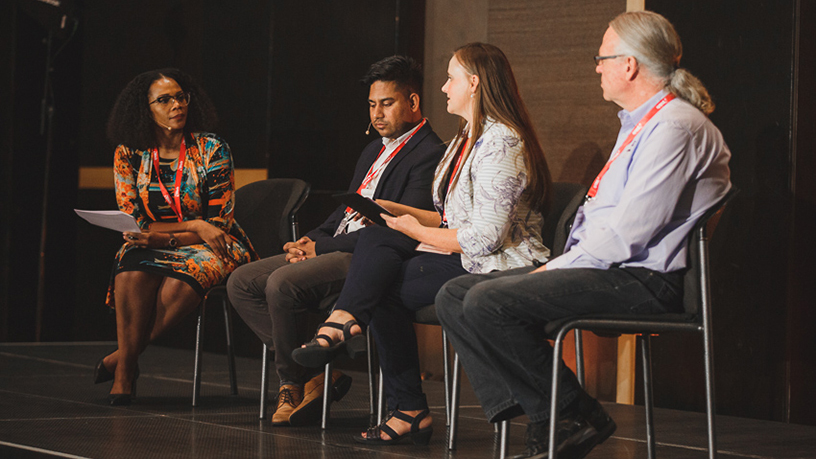The global shortage of data skills is growing exponentially, putting pressure on organisations to hire whatever skills they can find in the field.
According to Phokeng Mogase, CIO at the Financial Sector Conduct Authority,this desperation to fill roles only ends up costing the organisations more in the long run.
She chaired a panel discussion on the data skills gap facing organisations and how they can address on day one of the ITWeb Business Intelligence Summit 2020.
Data literacy, a critical business function
Mogase was joined on the panel by Elisja van Niekerk, IT project manager at MTN; Niren Ram, head of Absa's analytics enablement, and information governance advisor, Howard Diesel.
The discussion was opened by asking what the panelists' respective organisations are doing to close the data skills gap.
Ram explained that what started out as a data literacy course aimed at Absa's data scientists had to be eventually rolled out across the board as a 'critical' part of the business.
"We wanted to design a course to build the critical skills we needed for our specialists, then we realised that everyone in the organisation works with data. This meant we had to understand what skills each of our colleagues needed for their level."
"We've become better decision makers by becoming more data literate."
To address its skills challenge, MTN launched the Business Intelligence Competency Centre (BICC) that focuses on internal data governance and data quality training.
Said Van Niekerk: "Closing the gap has been a bigger focus for us in the past two years, we have reputable companies helping us develop our employees' data science skills from the fundamentals."
Diesel, an advisor at the SARB and president of the Data Administration Management Association (DAMA SA) spoke about DAMA's certified data management professional (CDMP) certification, saying it has grown in popularity.
“The number of certificates being issued in the past five years has escalated from around 16 to 120 annually’,” he said.
The annual re-certification programme is internationally recognised as the gold-standard for data management professionals.
However, Diesel lamented the fact that organisations creating their own data skills academies were simply widening the gap between themselves and what universities are teaching students, leaving universities behind.
Give and take
When an organisation cannot upskill its staff, it has to draw expertise from outside. But how can organisations improve their search for these skills in high demand?
"When we do find data scientists, we tend to overlook those with only practical experience because we're looking for highly qualified individuals... But I've noticed that those who have practice adjust to the environment much easier," said Ram.
The panel also encouraged organisations to recruit different data skill sets to have a wider variety in their skills pool.
In closing, the panel touched on what data scientists should watch out for when job hunting. “An enterprise that understands the value of data will include it in its business strategy,” said Mogase.
"Sometimes an organisation's only looking for a dashboard builder and not a data scientist, so I'd ask the interviewer to explain the organisation's data montisation plan. If they're focused on that, they're focused on data,” advised MTN's Van Niekerk.
The panel discussion closed with a poll question put to the audience: 'How are you addressing the skills gap?'
Nearly 40% said their organisation is not addressing the skills gap at all, while one third reported not 'nearly enough' training and awareness is provided. Only 13% of the respondents said their organisation does its own internal training which they find effective.
"Knowing this, we have an important responsibility to close in on the gap," concluded Mogase.


